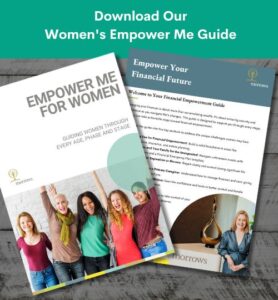Empower Me: Key Financial Questions for Women in Their 40s & 50s
During your 40s and 50s, life can feel like a juggling act. You may be raising children, managing household finances, caring for ageing parents, supporting adult kids, or navigating a demanding career. It’s a time filled with competing priorities — and that makes it even more important to take stock of your own financial future.
These are the years to build momentum toward your goals and ensure you’re on track for the lifestyle you want — both now and in the years ahead. Here are the key questions every woman at this stage should be asking.
“Should I be working with a financial advisor?”
Even if your partner typically handles the finances — or already has an adviser — it’s important that you feel confident, informed and involved.
Life can change in an instant: a separation, an unexpected illness, or the loss of a partner. Having trusted professionals around you ensures you’re prepared to make confident financial decisions when it matters most.
Look for a financial advisor who:
- Understands the financial realities of women at midlife — including career changes, caregiving, and wealth-building.
- Helps you articulate your goals, even if they differ from your partner’s.
- Makes you feel comfortable, heard, and respected. You’re interviewing them — not the other way around.
You don’t need to manage everything yourself — but you do need to stay involved.
“Am I prioritising my retirement — or putting others first?”
It’s common for women in this life stage to prioritise children, home loans, and even ageing parents over their own future. But when it comes to retirement, you can’t borrow for it later.
If you can only fund one goal, your retirement should come first.
Now is the time to:
- Increase your super contributions while you’re in your peak earning years.
- Review your super investment strategy — is it still appropriate for your age and goals?
- Explore salary sacrifice or spouse contributions to take advantage of tax efficiencies.
How much super should you have by now?
The Association of Superannuation Funds of Australia (ASFA) suggests that to be on track for a comfortable retirement by 67, your super balance should be roughly:
- Age 40: $154,000
- Age 50: $271,000
- Age 60: $430,000
Remember — everyone’s situation is different. These figures assume retirement at 67 with no mortgage and partial Age Pension support. A financial adviser can help tailor the strategy to your needs.
Use the ATO’s Super Health Check to see where you stand.
“Do I have my estate planning in order?”
It’s easy to put off — but having a clear plan in place ensures your wishes are followed and reduces stress on your loved ones.
At a minimum, you should have:
- A valid Will that reflects your current wishes.
- A nominated Power of Attorney and Medical Decision Maker.
- Up-to-date superannuation beneficiaries — these often expire every three years.
- A plan for how your assets will be distributed — and who will manage that process.
Download to our Empower Me Guide and head to the section on Financial Emergency Plan Template to help you organise your key documents and instructions. It’s an essential tool for peace of mind.
“What happens if my marriage doesn’t last?”
Financial separation or divorce later in life can be complex and emotionally draining — especially if you’ve built significant joint assets.
Even if your relationship is only beginning to feel unsettled, it’s wise to:
- Organise key financial documents: bank accounts, super balances, property titles, and insurance policies.
- Review and update your Will, super nominations, and insurance beneficiaries.
- Seek guidance from a family lawyer and a financial adviser to understand your rights and prepare for different outcomes.
Download to our Empower Me Guide and head to the section on Preparing for Separation or Divorce for a practical checklist, support tips, and next steps.
“How do I support ageing parents without sacrificing my financial security?”
Women are more likely to become caregivers — often without planning for the financial impact. Caregiving can affect your ability to work, reduce super contributions, and lead to emotional and financial strain.
Before stepping back from your job or spending personal savings:
- Speak with your family about sharing responsibilities.
- Research government support such as My Aged Care and home care subsidies.
- Work with a financial adviser to plan for both your loved one’s care and your future.
Download our Planning for Aged Care Guide to help you understand your options and make informed decisions.

Need Help Taking the Next Step?
Your journey to financial confidence starts here.
Get your copy of our Women’s Empower Me and Aged Care Guides—crafted by women, for women.
It’s packed with practical advice and tools designed to help women like you lay strong foundations and feel prepared for life’s what-ifs..
Complete your details below, to gain access today!





